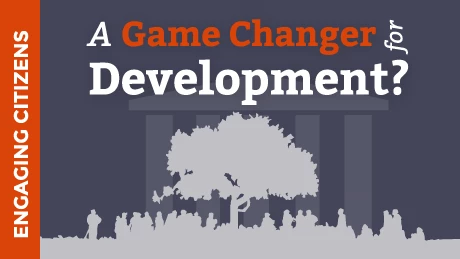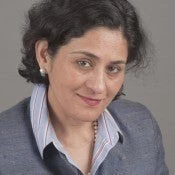Imagine a group of researchers, students, civil society organizations, development practitioners and professors from the London School of Economics all gathered together for a lively event to discuss the first World Bank MOOC on Citizen Engagement.
The discussion included many voices and perspectives around Citizen Engagement as a Game Changer for Development, as well as around the potential for leveraging Innovations in Technologies and MOOCs to support citizen engagement.
As you can imagine, these discussions were engaging, participatory, and, most importantly, thought-provoking.
To bring you into the discussion, we have highlighted below some important questions, themes, and next steps which surfaced during the event.
- What role can citizen engagement play to enhance the inclusiveness of development programs and the formulation of national and local policy?
- Can citizen engagement fundamentally change the relationship between citizens, civil society, governments and international donors?
- Why is it is so hard to establish any causal link between improved?
- What are some of the key barriers that citizen and communities face when engaging governments, donors and the private sector?
Citizen Engagement in the Digital Age: Healthy Skepticism & Concrete Suggestions
The rich discussion among the panelists had a healthy sense of skepticism on citizen engagemen t programs and the opportunities new technologies and MOOCs can play for broadening the development dialogue.
The panelist agreed that new technologies have the potential for fundamentally transforming development and citizen engagement ; however, the impact is frequently not well understood and is often cast in simple and limited terms.
Evidence from the new book Development as Freedom in a Digital Age shows that under certain conditions, ICTs in fact can significantly enhance poor people’s the human and social capabilities and thus have a positive impact on their well-being.
Furthermore new technologies can play an important role to empower citizens to better make their voices heard, amplify and even strengthen people’s collective and ‘connective” action.
At the same time, there was the sense that a lot of hype exists around the role ICT-enabled citizen engagement can play. Therefore, it is important not to focus simply on engagement but rather on “meaningful” citizen engagement.
Here's a snapshot of the debate:
- Citizen engagement and new technologies are not a panacea for development .
- Openness does not automatically translate into improved responsiveness.
- It is critical that citizen engagement programs are genuinely owned and driven by citizens and civic society and do not simply become a tool to legitimize existing policies and programs.
- Voice and enhanced accountability have an intrinsic value of their own and can help to strengthen both collective and connective action.
- It is critical to go beyond listening to the poor and to support institutional and cultural changes within governments that allow policy makers to fully incorporate citizen voices into their decision making process.
- The lack of an effective enabling environment represents major obstacles to meaningful citizen engagement.
- MOOCs are a fascinating new instrument that have the potential to broaden the development conversation. Anywhere, anytime is the mantra.
- A challenge however is to make them more inclusive and focus on expanding the reach to include traditionally marginalized groups.
- Being fully open, interactive, and empowering its participants to actively engage in the courses is critical.
- MOOCs, which are basically technology-enabled, have limitations in reaching people. They do not replace other forms of knowledge and learning.
From the discussions, it become clear that that MOOCs can democratize learning and bring South-South North-South discussions and knowledge exchange to geographically dispersed people. MOOCs also have the potential to mobilize participation, create communities of practice, and bring together diverse points of views, all of which can enable knowledge sharing and development.
However, much more needs to be done.
Most importantly, we need many more MOOCS on key development topics and challenges. Equally important, we also need to find ways to include more marginalized communities through broader and easier access.
This is just the beginning of the discussion. We invite you all to join the conversation.
To get you started, see how we can leverage new technologies to proactively engage in a conversation about both the opportunities and challenges of Citizen Engagement. Watch the video below.
It’s an open, inter-active session from our Citizen Engagement MOOC, where hundreds of people from around the world participated via a Google Hangout and joined live discussions on Citizen Engagement.
Here are some World Bank MOOCs:
Engaging Citizens: A Game Changer for Development?
Turn Down the Heat: Why a 4°C Warmer World Must be Avoided (English Version)
Bajemos la temperatura - Por qué se debe evitar un planeta 4°C más cálido (Spanish Version of Turn Down the Heat MOOC)
Public-Private Partnerships (PPP): How can PPPs help deliver better services?




Join the Conversation